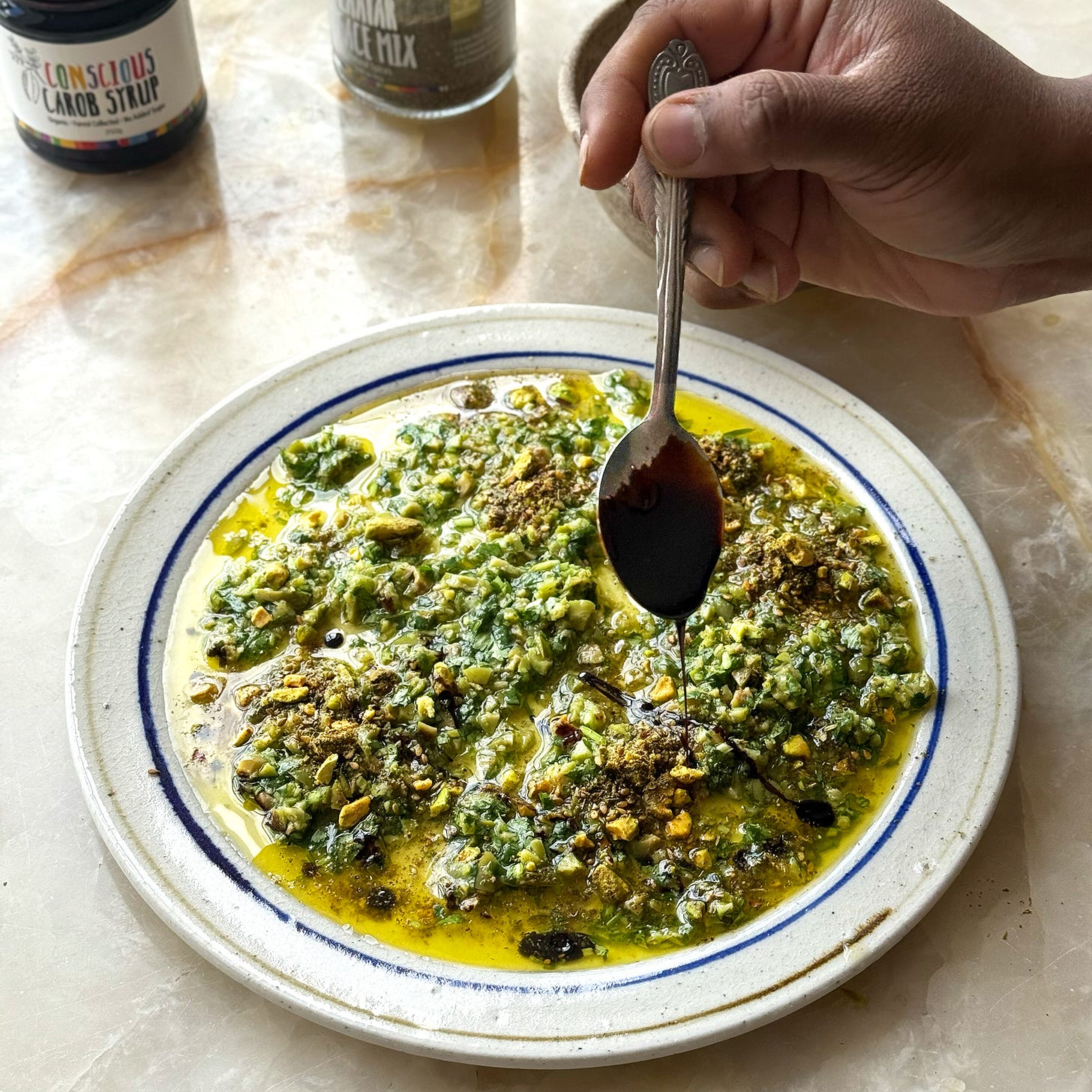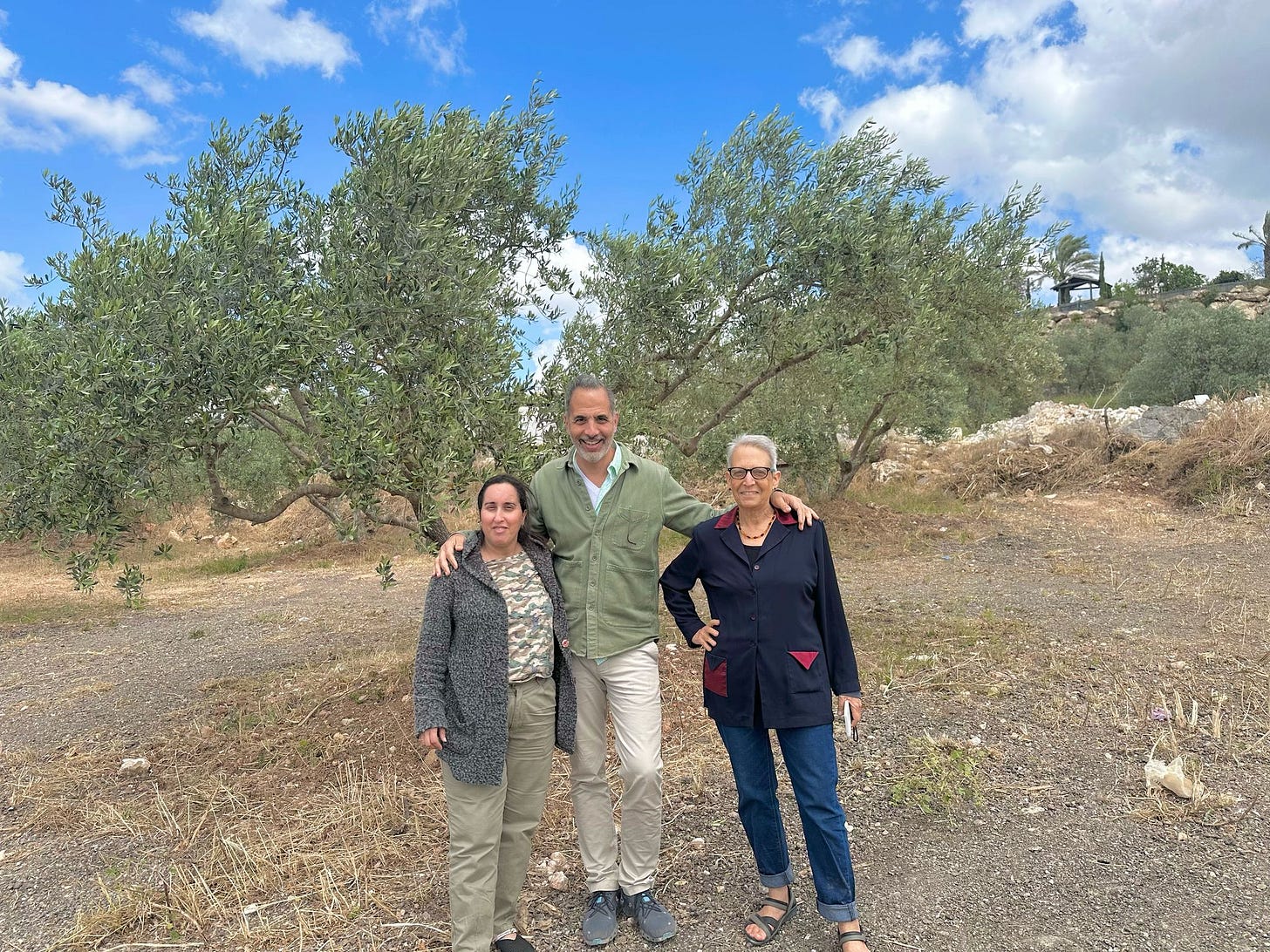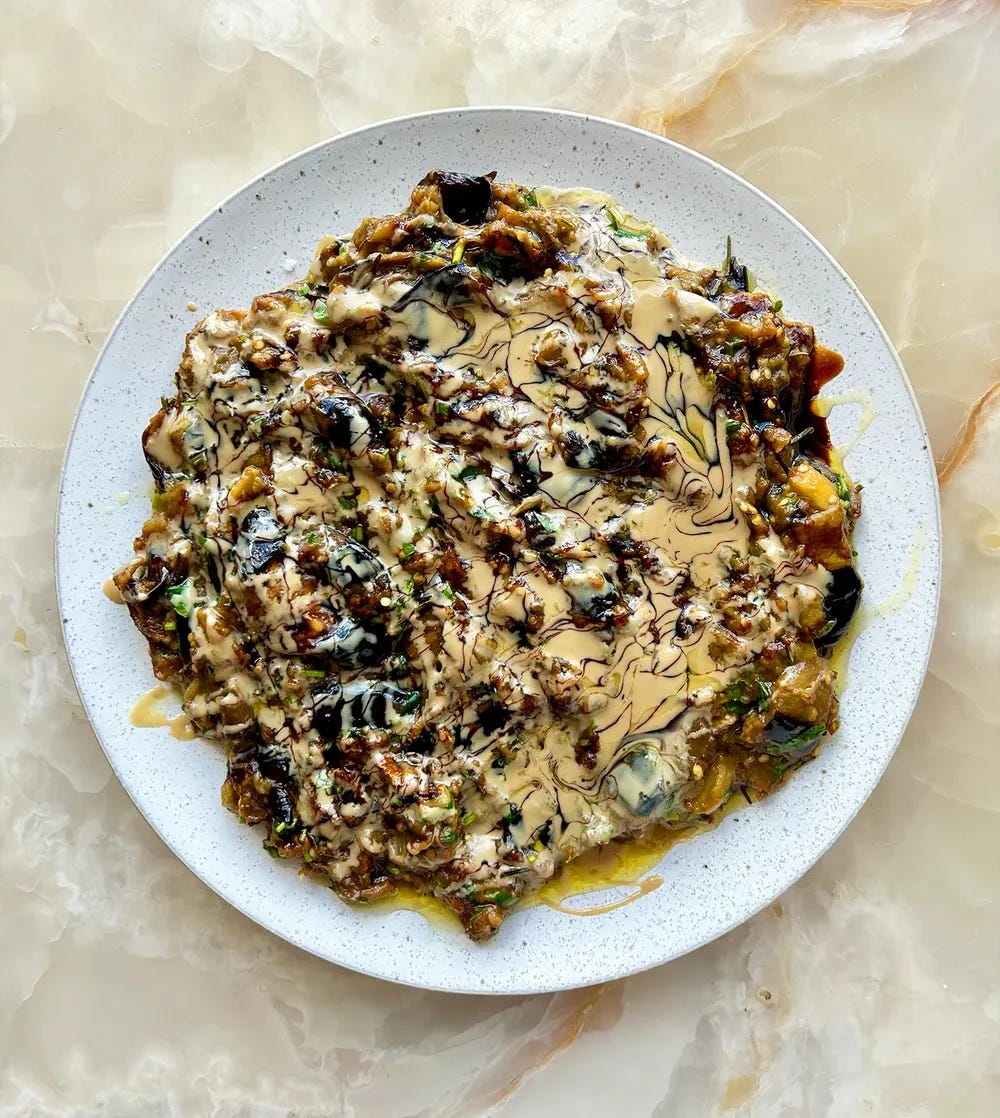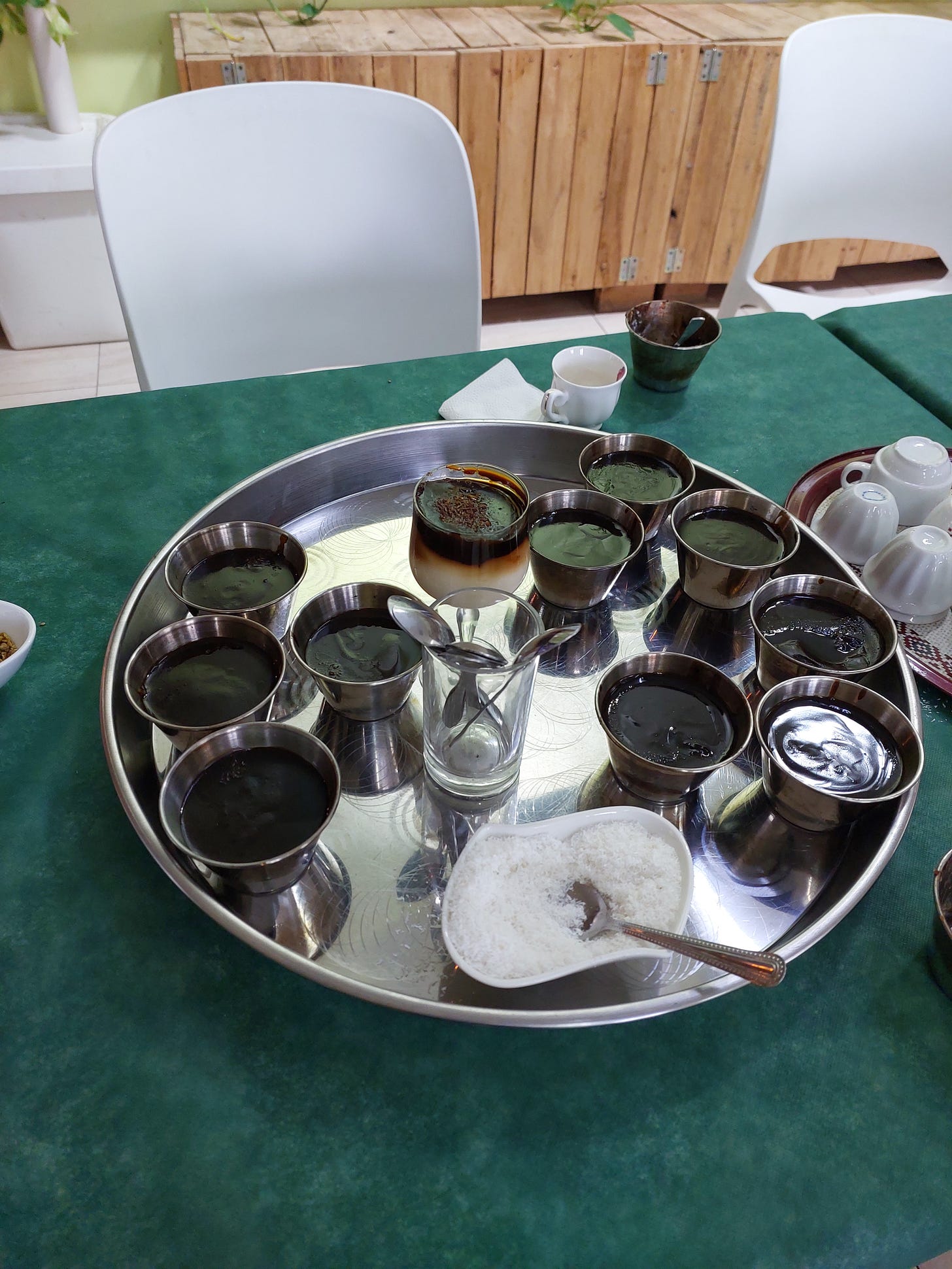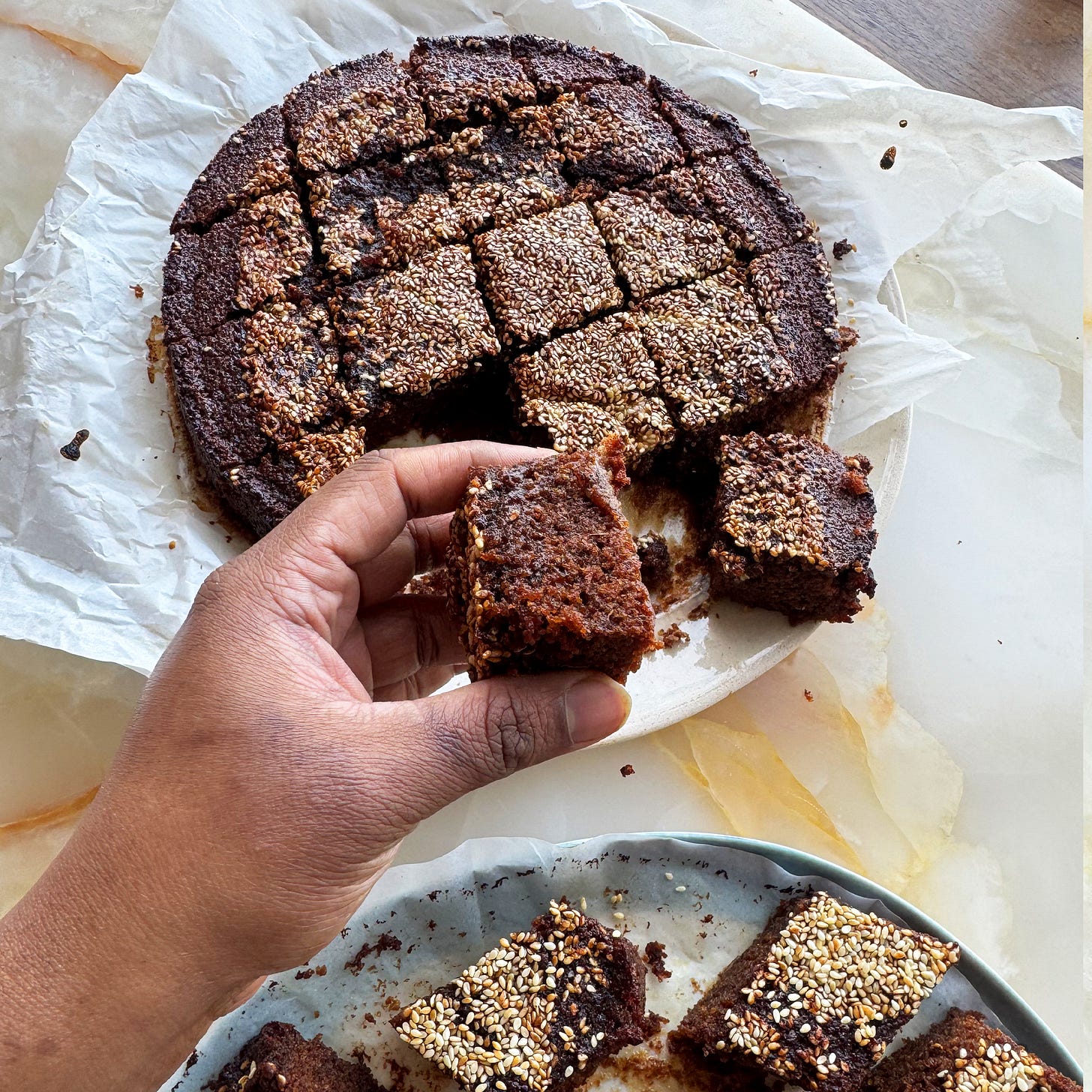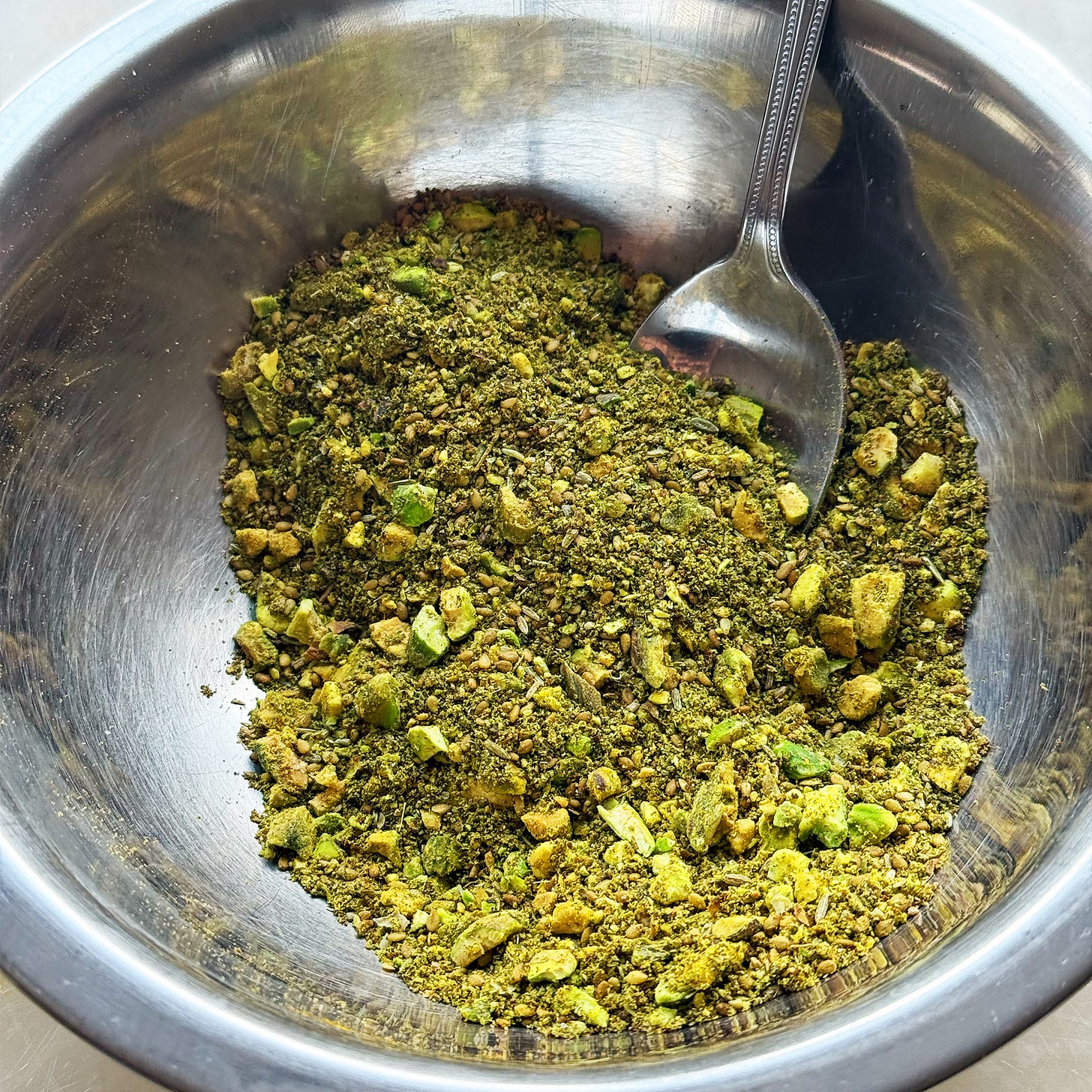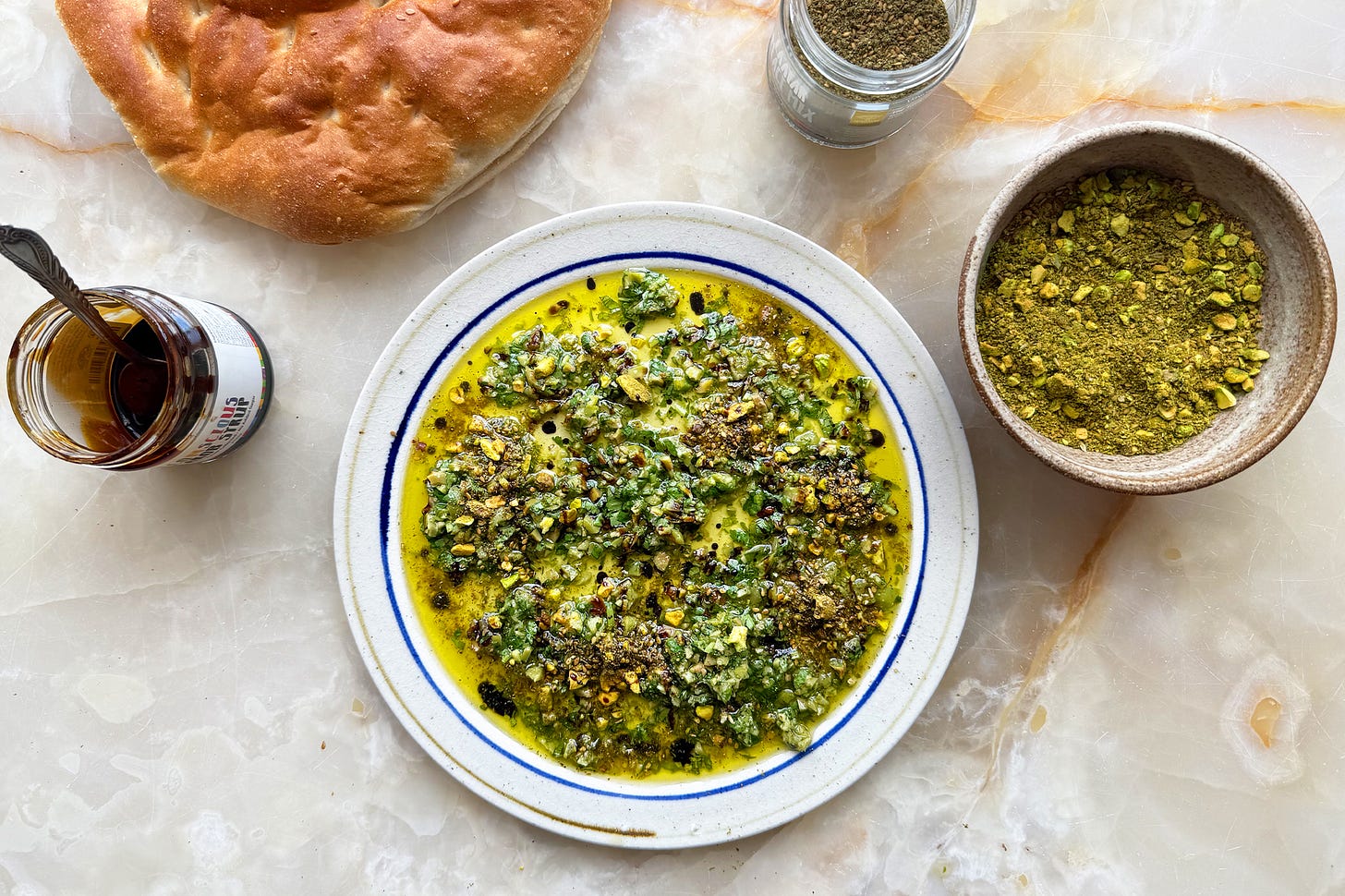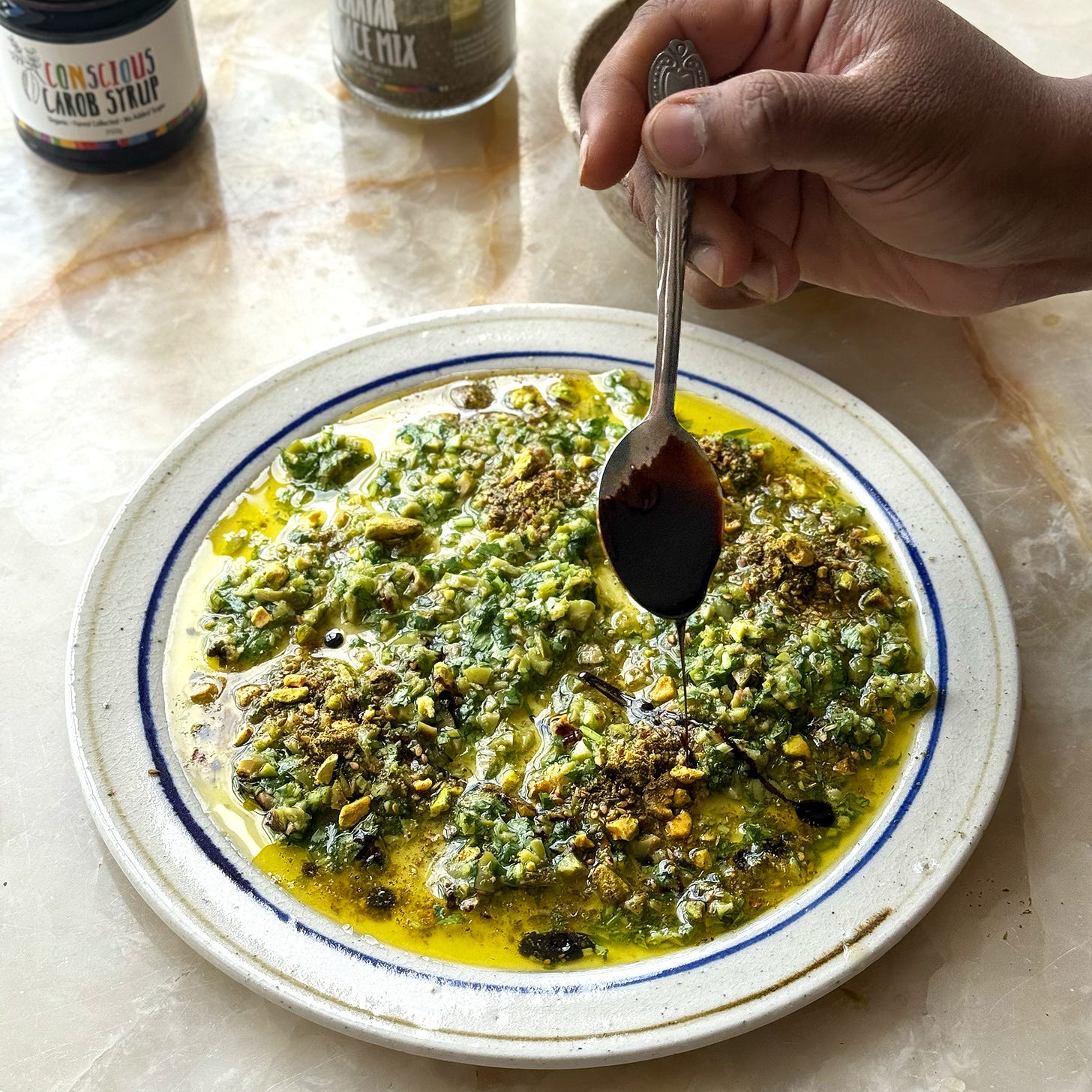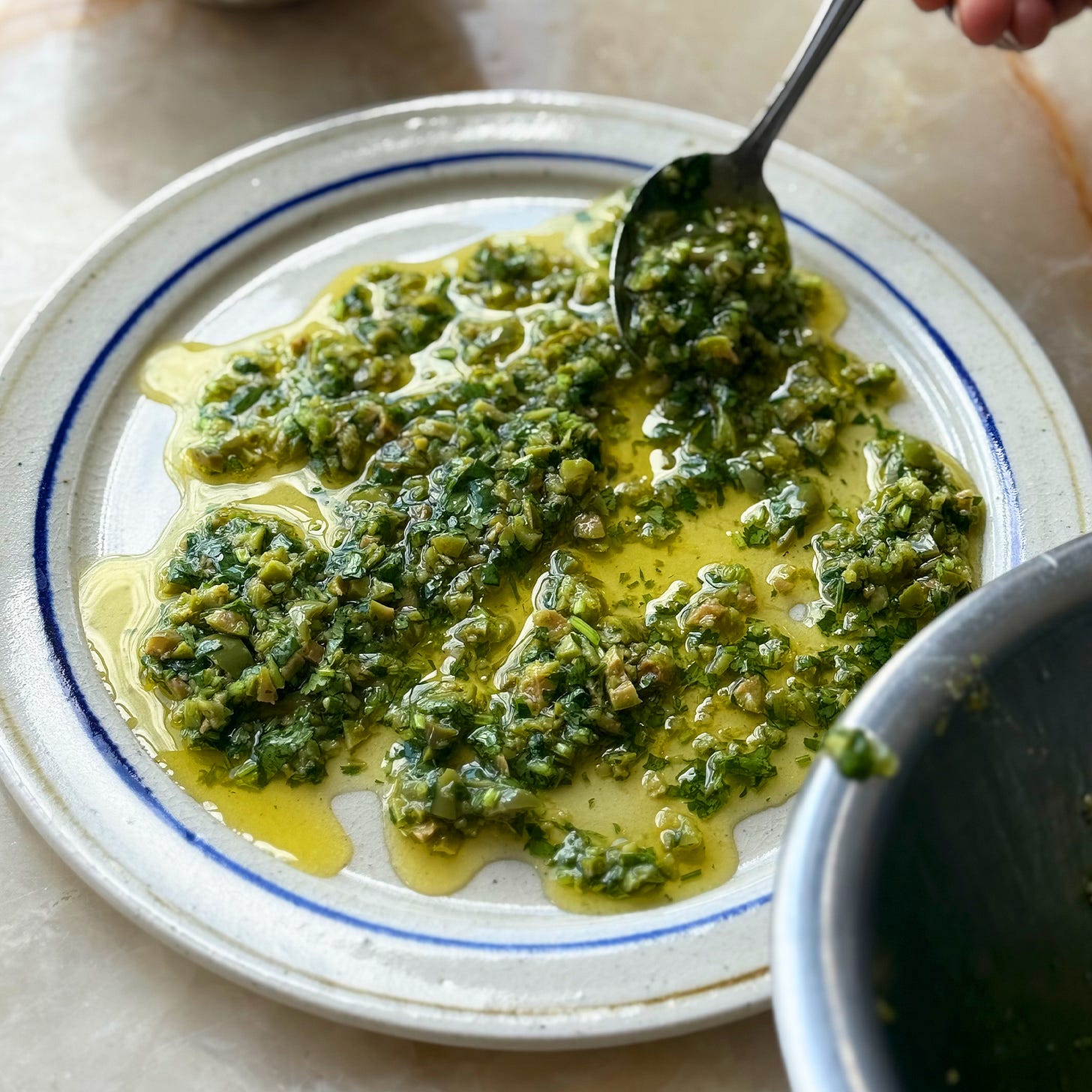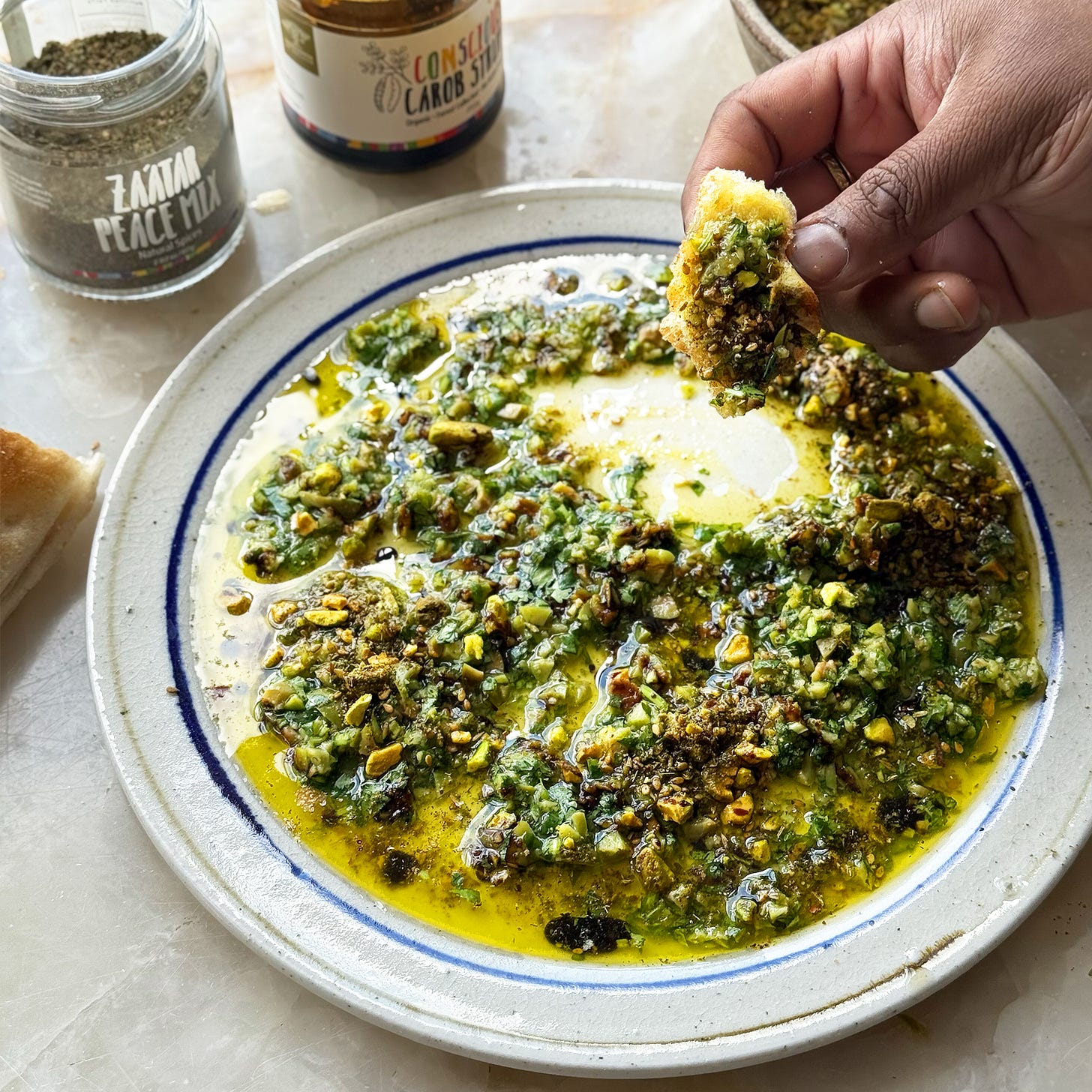Three recipes from the women building bridges with food
Rich semolina cake, a za’atar dukkah, and a quick dip.
Every once in a while, it dawns on me that the unsung heroes of food are actually the people behind the ingredients we all use in our kitchens. Sounds trivial, I know, but my ‘surprise’ is because it’s so easy to just not see them. There are tomatoes on my ingredients list, or a tin of sardines and a bottle of olive oil, there’s garlic and a loaf of bread - there’s all this potential to make something delicious: a dish, a meal, a feast for friends - why would I think of anything else?
The natural appeal of raw ingredients, the magic of cooking and the joy of feeding the people we love - all of this tends to blind us to the stories behind our shopping lists. We miss the years of knowledge passed down, the early mornings in the fields, the careful selection and patient processing. In our industrialised world, where everything appears fully formed on supermarket shelves, it's easy to forget that every ingredient carries someone's dedication with it.
This is why sometimes (not nearly often enough) I mention here in passing some of the producers or growers I come across at work. There's no system to this - it can be anyone who makes something we cook with at the test kitchen - but I think it's an important acknowledgement, a nod to this hidden effort.
Today I’m celebrating the work of Sindyanna of Galilee, a collective of women - Palestinian and Israeli - who work together to produce some of my favourite ingredients.
I have been championing Sindyanna’s produce for about a year now, ever since meeting Hanan and Hadas, two of the driving forces behind this organisation. I met them in London on a wet winter’s evening and immediately fell for their warmth, their sense of mission, and their belief in food as a force for good in a highly fractured society.
That evening, Hanan and Hadas pulled out of their heavy bags a selection of treasures that immediately made me forget the miserable evening weather: bottles of peppery olive oils, each with its unique aroma, Galilee honey, almonds and almond paste, some of the best za’atar I have ever tasted, and carob syrup, intensely dark and rich, like deep molasses infused with chocolate and plums.
The team and I have completely fallen in love with Sindyanna’s ingredients, particularly the carob syrup, and we’ve been using them constantly. I seriously urge you to try this aubergine dip, ideally with the carob syrup, though also great with date syrup if you can’t get it.
In April, I finally managed to visit Sindyanna and meet the rest of the team. My two boys and I saw how the za’atar is packed into jars, how oil is bottled and how the organisation is making great efforts to support farmers and promote dialogue between Jews and Arabs. We were obviously also treated to a feast!
Sindyanna is built on Fair Trade principles, putting all profits back into women's education and empowerment (fair prices for their harvest, jobs in the packing houses, teaching initiatives). The name itself - Sindyanna, meaning oak tree in Arabic - feels just right. Deep roots, steady growth. What gets me, though, is how they've never let their social mission compromise the quality of their produce. It's this wonderful collision of real purpose and real flavour.
In the midst of deeply troubling times, Sindyanna’s work may seem small in the face of such enormity. I can totally see that. I still feel that in a landscape defined by division, we can take a little bit of comfort from seeing women from the two communities, working side by side, making an effort against all odds.
This week's recipes are free for all subscribers.
Sfouf b’Debs (rich semolina cake)
Sfouf is a Lebanese semolina cake flavoured with spices and cut into distinctive diamond slices made by making a parallel row pattern. This version uses carob syrup (you can use date syrup instead) which turns it dark and moist, with a glossy depth that reminds me of a mix of dates and chocolate.
The tahini drizzle on top creates little pockets of nuttiness that play against the rich sweetness. The anise seeds might seem like an unusual addition, but trust me - they make it even more special.
Za’atar and Pistachio Dukkah
I tend to use the term dukkah quite loosely; essentially, any nuts and seeds I have lying around, toasted and bashed together with spices until I’ve got something to sprinkle over everything. This version leans on pistachios and that exceptional za'atar from Sindyanna.
Getting the texture right matters - bash the pistachios enough to release their oils, but stop before they turn to dust. We tear through jars of this stuff at the test kitchen - over morning eggs, on salads, or mixed with crushed olives and olive oil for a quick dip.
Makes 100g jar | Prep 5 mins
Ingredients
2 tsp fennel seeds, lightly toasted
1 tsp sumac
30g za’atar
½ tsp chilli flakes (use less if you like less heat)
½ tsp ground turmeric
60g pistachios, toasted
Fine sea salt
Method
Crush the fennel seeds coarsely using a pestle and mortar and add to a bowl with the sumac, za’atar, chilli, turmeric and ¼ teaspoon of fine sea salt.
Using the pestle, bash the pistachios to about 2-3 millimetres.
Stir into the dukkah bowl and store in an airtight jar, away from sunlight.
Olive and Za’atar Dukkah Dip
This is one of those dishes that's more assembly than anything else - green olives finely chopped (keep them slightly chunky for texture), garlic crushed with the flat of a knife, everything swimming in good olive oil. The carob syrup drizzled at the end brings that sweet-savoury note that ties it all together. Quick to throw together, brilliant as part of a spread.
Serves 4 | Prep 10 mins
Ingredients
60g nocellara or other green olives, finely chopped
1 garlic clove, crushed
20g coriander (or parsley), finely chopped
130ml olive oil
Za’atar and pistachio dukkah above (or any other dukkah)
Sindyanna carob syrup (or date syrup) for drizzling
Fine sea salt
Method
Place the olives, garlic, coriander and olive oil in a bowl with ⅛ teaspoon of salt. Mix well and spoon onto a plate.
Scatter over some dukkah, drizzle over some carob syrup and serve with pitta to dip in.





